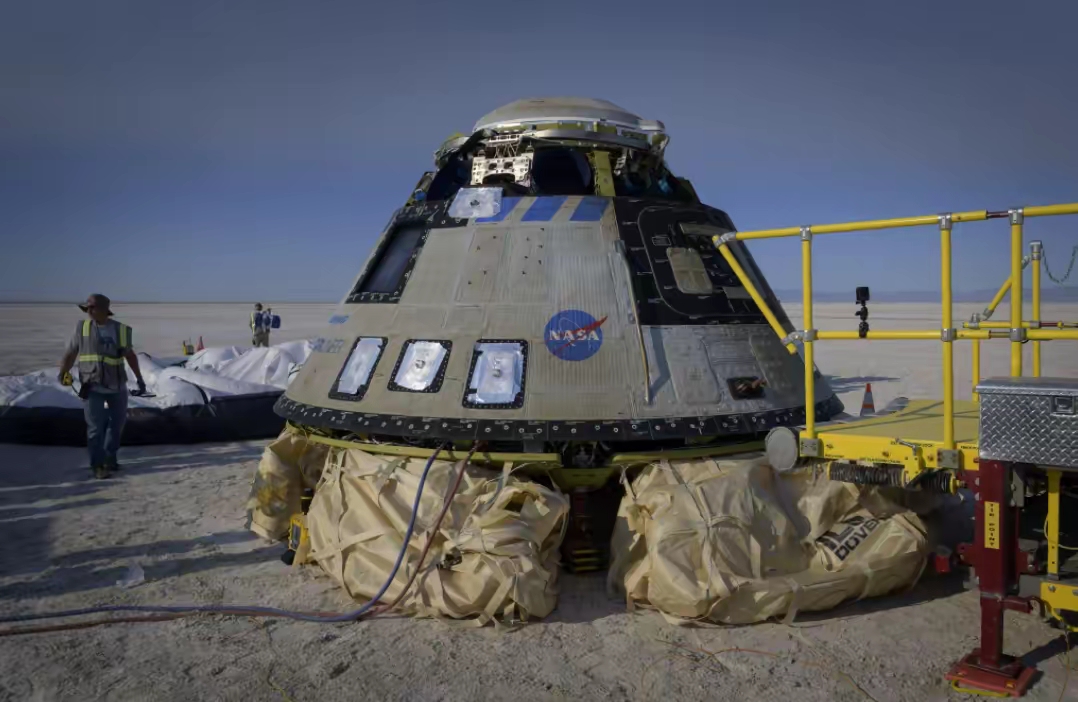
On June 1st local time, Boeing and the National Aeronautics and Space Administration of the United States once again postponed the first manned test flight of the interstellar spacecraft due to a technical malfunction of the spacecraft at the moment before launch. Regarding the specific reason, NASA explained in a statement that there was a problem with the power supply device in a computer, including a malfunctioning valve card used to replenish propellant, which had also malfunctioned earlier in the countdown.
It is reported that once the test flight plan is successful, it will send NASA astronauts Butch Wilmore and Suni Williams to the International Space Station, and then return to the ground after staying at the station for a week. It is worth mentioning that the results of this mission will open up a new journey for Boeing, which means that the International Space Station mission will begin from 2025.
The test flight project of this spacecraft is a new plan jointly undertaken by international aviation giant Boeing and NASA. The plan aims to design and manufacture manned spacecraft that can travel between Earth and the International Space Station, and even be used for future private space stations and new manned spacecraft in low Earth orbit.
The construction of Boeing's interstellar spacecraft is mainly part of the commercial crew program developed by Boeing for NASA. This spacecraft is a reusable manned spacecraft that adopts a series of dual cabin configurations, consisting of a crew compartment and a service compartment. The crew compartment can theoretically be reused 10 times.
NASA stated at a subsequent press conference that the next possible launch window may be on June 5th or June 6th, after the related malfunctions of the spacecraft are repaired. In fact, public information shows that the launch plan has been delayed multiple times due to a series of issues such as system failures of the spacecraft.
As early as December 2019, the interstellar spacecraft failed to enter its intended orbit without manned test flights for the first time, forcing it to cancel its mission to the International Space Station. On December 20th, an interstellar aircraft carrying a dummy took off from Cape Canaveral on the Cosmos 5 carrier rocket, carrying out its first unmanned test flight. But the interstellar aircraft's timer had an error of 11 hours, wasting too much propellant, resulting in the cancellation of the docking plan with the space station.
In August 2021 local time, the second unmanned test flight of the spacecraft was delayed due to a malfunction in the rocket propulsion system, and it was not until May 2022 that the unmanned demonstration flight was completed. John Walmer, the project manager of Boeing responsible for the interstellar aircraft, claimed that after a crew free demonstration flight, a test mission with astronauts may be conducted "perhaps before the end of the year.". However, the plan was once again postponed due to unforeseen circumstances.
On May 7th of this year, the originally planned manned flight test was cancelled two hours before launch. NASA announced that the target launch date for the first manned test flight of Boeing's interstellar aircraft would be postponed again to replace the faulty pressure regulating valve on the booster rocket. The specific time should not be earlier than May 17th local time.
As a result, on the day of the upcoming test flight mission on May 23rd local time, NASA once again announced that the Boeing aircraft test flight plan had been postponed due to valve failure on the Cosmos 5 rocket that pushed the spacecraft. On May 31st, it was announced that it would be implemented on June 2nd. The result is well-known, but it was delayed due to unforeseen circumstances during the countdown period of the spacecraft's launch.
From the current situation, it is still unknown when the spacecraft will be able to take off smoothly. In recent years, Boeing has faced frequent problems and has been widely questioned by the global public. Now, it has teamed up with NASA to implement the plan, and the results are worrying. Many members of the public and media question the reliability of Boeing, believing that its frequent aircraft accidents make it even more difficult to ensure the safety of its spacecraft. All signs seem to indicate that the United States' space capabilities are declining and its previous advantages are no longer present.

Recently, the US State Department issued a visa ban, adding Thierry Breton, a former member of the European Commission and a key designer of the EU's Digital Services Act (DSA), to the sanctions list.
Recently, the US State Department issued a visa ban, adding…
On January 20, 2025, just 13 days after taking office, Trum…
On December 19, 2025, the U.S. Department of Energy, along …
The relationship between the Trump administration and the U…
On December 30, 2025, tech giant Meta officially announced …
Data shows that from April 2024 to March 2025, there were 3…